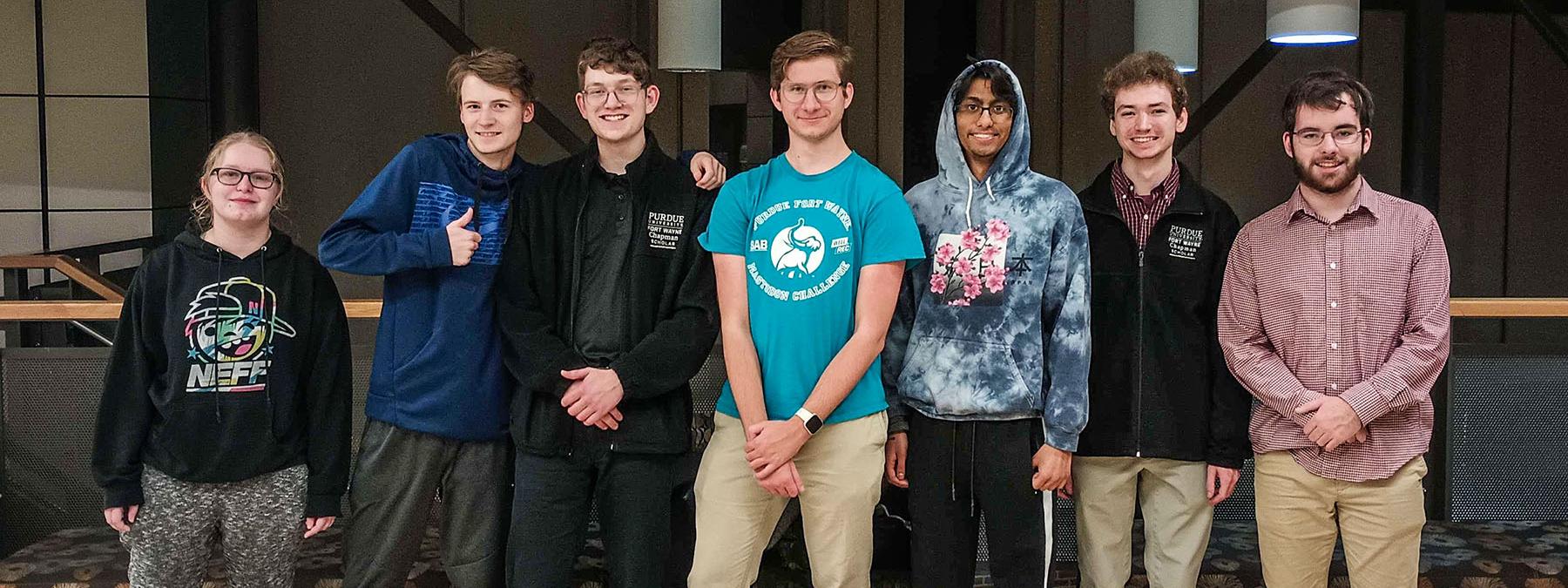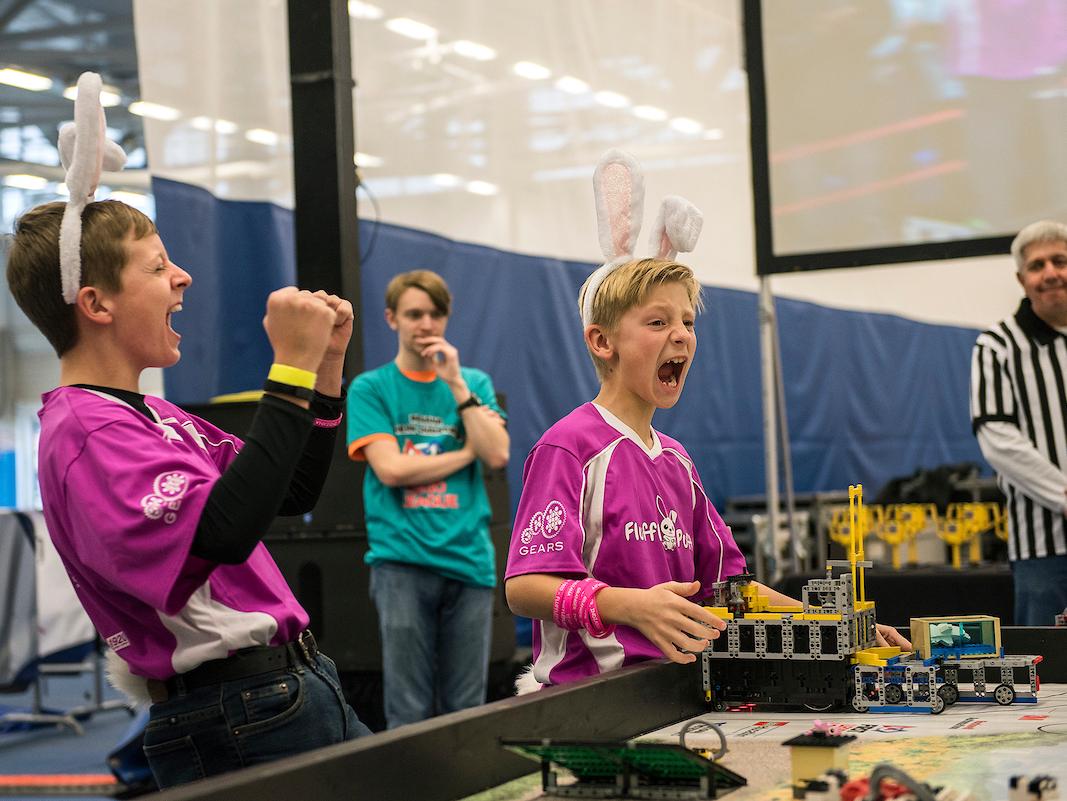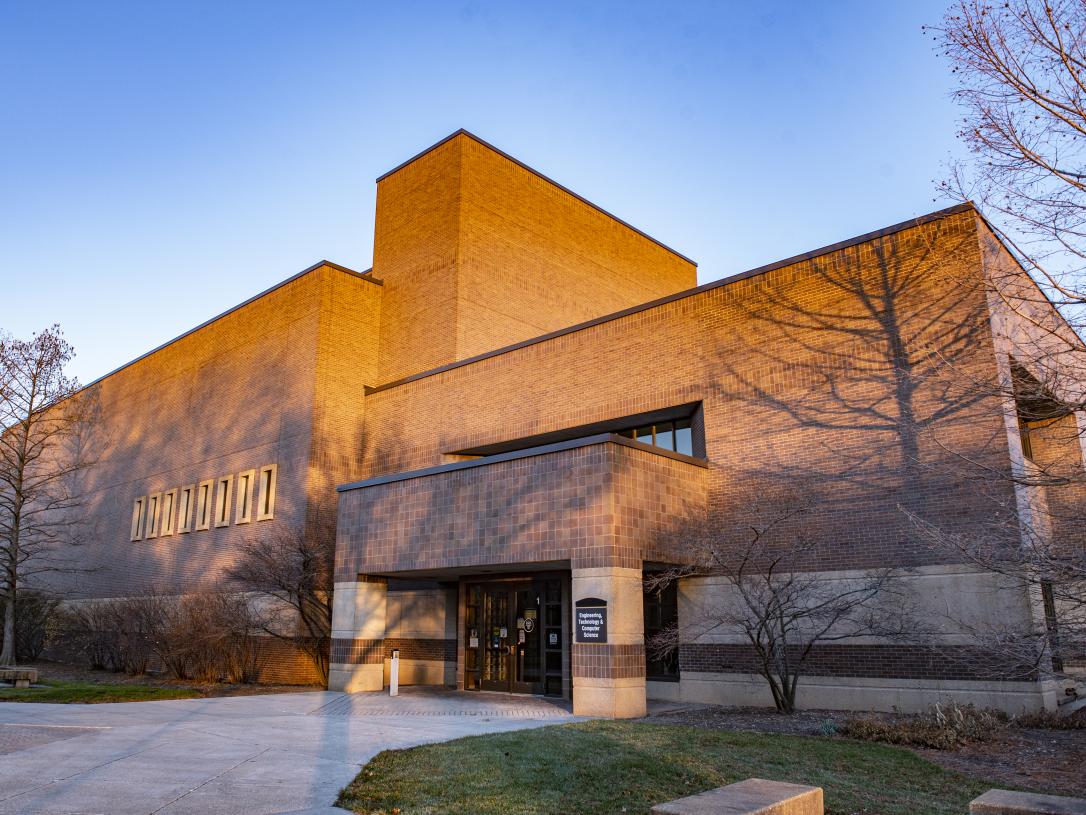
PFW computer science majors fare well in big competitions
By Blake Sebring
December 5, 2023
Maybe last spring’s results should have been a hint. Purdue University Fort Wayne’s National Cyber League team finished 36th out of 315 in a major cybersecurity competition, which was PFW’s best finish since it first fielded an NCL team in 2018.
That outcome came in the more challenging experienced division because one team member held a job in cybersecurity. Not surprisingly, there were high hopes for this fall’s NCL competition that took place Nov. 3–5. This semester’s PFW team participated in the inexperienced (undergrad) division, though it did include an intimidating 1,062 total combatants.
PFW’s collection of computer science majors matched last spring’s performance to finish 36th again despite the increase in competitors. Individual team members are also doing well this fall. Senior Sean Tierney is sitting at 240th and senior Neal Birchfield 242nd out of 9,770 who registered for the current season. Seniors Luke Bushur and Ronit Patel are also on track to finish among the top 1,000 when the campaign concludes Dec. 15. Currently, PFW ranks 38th nationally in the combined power rankings.
To add perspective, PFW finished second among all Indiana colleges and universities, and fifth among all Midwest competitors, at the team event in November.
“This was the hardest NCL season I’ve ever competed in,” said senior Tyler Delagrange, a three-time participant. “Part of our success was because we had more experience knowing what to expect, and we had a full team of seven people. We could delegate tasks, get more opinions and perspectives on things, and that helps so much with the challenges that NCL gives you.”
Along with Tierney, Birchfield, Bushur, Patel, and Delagrange, other team members this fall are freshman Maxwell Klema and sophomore Elizabeth Perry.
This was the first time Tierney, Perry, and Klema competed, but two Birchfield-led preparation sessions helped the squad get off to a fast start solving problems on the first evening of the team competition. Then Ronit stayed up all night to finish three or four more questions to set everyone up for more success starting at 8 a.m. on day two.
“Late Saturday night, we kept pushing our score up, and we were semi-consistently getting questions done and putting up points,” Delagrange said. “Usually, by that point is where most teams start to stagnate, but we were still doing well.”
Teams earn points for answering questions correctly and completing the problems in the fewest attempts.
“We are all friends, so it’s easier to share ideas and be in each other’s company, even getting frustrated at times and spending hours on individual questions,” Bushur said. “We enjoy being in each other’s company, and that made us more comfortable sharing ideas, maybe even stupid ideas. We had a lot of fun solving all the problems and working together, but there were a couple of problems we spent hours on and got absolutely nowhere.”
Over the final 60 minutes of the competition on day three, the standings board was blacked out, but the squad already knew it was earning a top-50 finish.
“At times during the weekend, it didn’t even feel like we were doing a competition because we were so invested in solving problems,” Klema said. “I think we were more happy we were able to solve problems than what the points meant. That rush of adrenalin once you solve a problem you’ve been working on for hours is just priceless.”
As Bushur said, “It was really fun because toward the end we were all cramming to get the last few questions done. We were just trying to get it done as fast as possible. There was a lot of pressure, but it was really enjoyable.”
During the hour it took to post the final results following the competition, team members tried solving missed questions out of curiosity. They were exhausted but satisfied, and there were also 8 a.m. classes the next day to prepare for.
“I remember finishing the competition and realized I have to wait until April for the next one,” Tierney said. “I wanted to do a winter one. You learn so much in the competition, you want to go again right away.”
The next NCL competitions are April 5–7 for individuals and April 19–21 for teams. The first goal for the 2024 spring season is to field more than one squad. Those interested in being considered for a spot can reach out to current team members or faculty sponsor Zesheng Chen, associate professor of computer science.
Doubles teams finish high at IEEEXtreme
Competing for the first time, a pair of PFW doubles teams gave a strong showing in the IEEEXtreme programming competition on Oct. 28. Out of 207 teams from the U.S. and 7,094 worldwide, junior Blaze Jackson and graduate student Shafinaz Yasin placed 40th, and freshmen Alexander Yauchler and Aidan Mao placed 41st. Student teams from 69 countries competed over 24 hours to solve a set of programming problems under a proctor’s supervision.




